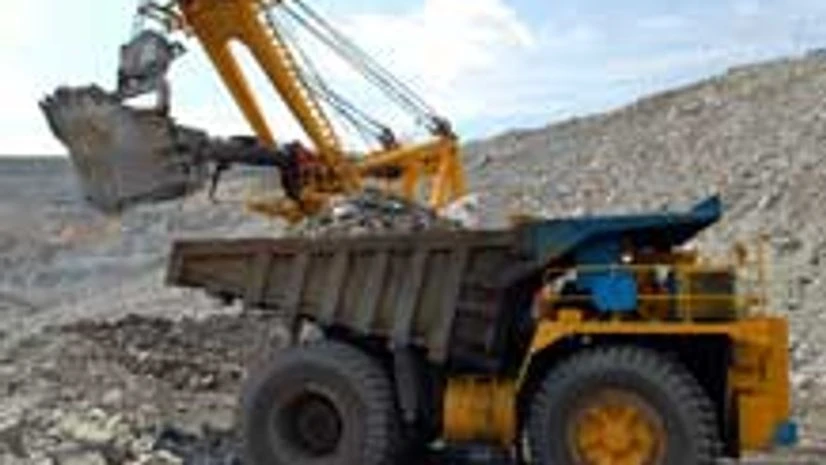The Central Bureau of Investigation, or CBI, has begun probing the environmental clearances given for iron and manganese mining in the Saranda forests of Jharkhand. The move, if it reaches its logical conclusion, could set a precedent in environmental jurisprudence. Till date, the judiciary has only tested if the government applied its mind well while giving such green clearances and that the application of mind was done on the basis of actual and relevant facts. It has, in fact, at times ignored its own findings of faulty clearances and permitted projects in the name of 'sustainable development'.
The CBI will now look at the clearance process through the lens of Prevention of Corruption Act, 1988. Section 13 of the Act does not require it to be proven that an official of the environment ministry gained any pecuniary benefit personally out of the clearances but only that he or she obtained for someone else a pecuniary benefit that was not legitimate. Environmental regulations have always had space for political discretion in the name of settling a decision in favour of either development or environment. This was questioned recently when the National Green Tribunal ordered that the environment minister could not clear projects against the advice of statutory experts without an adequate counterweight of fresh facts.
But in the previous government, political discretion was used not only by the environment minister but in many cases through the Cabinet Committee on Infrastructure, or CCI. In fact, in one of the Saranda cases, the final nod was given on the approval of CCI headed by then prime minister, Manmohan Singh. The current National Democratic Alliance (NDA) government continues to use such discretionary powers to clear projects - in fact with greater haste. The 3,000-Mw Dibang hydroelectric project in Arunachal Pradesh has become a prominent case when the government twisted and reversed its stand to take a favourable decision after repeatedly rejecting a project without any new facts on the table. There are several other examples where considerations such as 'defence and security' have been held paramount or where 'development' has taken precedence over environmental integrity.
So far, even the Supreme Court's forest-related panel, the Centrally Empowered Committee, has dithered from recommending CBI probe into the iron ore mining scams. In fact, in Karnataka and Odisha, it has devised formulations that have led to illegal mining being let off easy and retrospectively legitimised. It would be interesting to see how far CBI can take its investigation into the Shah Commission reports.
THE SARANDA CASE FILE
The West Singhbum district in Jharkhand has a dense green cover, with 40 per cent of the land covered by forest known as Saranda or 'the Seven Hundred Hills.' The Saranda division comprises 81,664.17 hectares of reserved forests and 3,989.93 hectares of protected forests. The area was designated as Singhbhum Elephant Reserve and is Asia's largest sal forest.
Opening the Elephant Reserve
The state and the environment ministry kept reducing the area of the reserve to permit mining. Ironically, they promoted a wildlife action plan, paid by the miners, to mitigate the damage. The plan never saw the light of day
First strike
In February 2011, then environment minister Jairam Ramesh gave environment nod to mine iron ore from Chiria in Saranda to state-owned Steel Authority of India, or SAIL, overruling statutory experts. Soon after, a private company, Usha Martin, was granted the Vijay II iron ore block despite Ramesh being of the view that the forests should not be opened up for mining to private players.
The precedent used again
In February 2012, another private company, Electrosteel Casting, was granted the Dirsumburu Iron & Manganese Mine. This project got the nod from then environment minister, Jayanthi Natarajan, despite being rejected twice by the Forest Advisory Committee. The Shah Commission suggested an enquiry into the case.
Cabinet Committee too involved
In January 2013, two private companies, Jindal Steel and JSW Steel, were granted clearance by Natarajan which has now stirred controversy. Ramesh (then rural development minister) wrote Singh expressing his disappointment. Natarajan shot back, saying Ramesh himself approved players like Usha Martin and SAIL to operate in the region. The Cabinet Committee on Infrastructure permitted Natarajan to go ahead with the clearances.
CBI filed a preliminary inquiry in October against Jindal Steel and JSW Steel for alleged irregularity in obtaining environment clearances. The Shah Commission too has raised questions on each of these clearances . The National Democratic Alliance government's Action Taken Report in contrast justified most of the actions of the United Progressive Alliance government.

)
